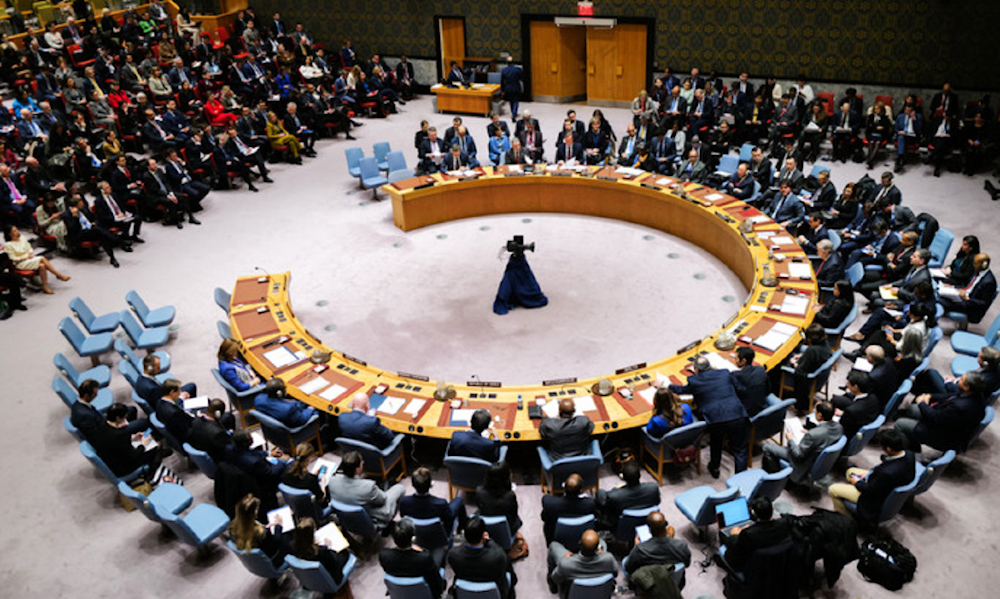India slams UN reform proposed by Italian-led group
Italian-led group Uniting for Consensus rejects the expansion of permanent UNSC membership, expressing concerns that it would make it "less democratic."
-

The UN Security Council holds a meeting on the Russia-Ukraine war at UN Headquarters in New York City on February 23, 2024. (AFP)
India has once again voiced its belief that more permanent members of the UN Security Council from Global South nations are needed, while strongly rejecting reforms proposed by Italy-led Uniting for Consensus.
Uniting for Consensus (UfC) suggests raising the total number of non-permanent members from ten to 22, as well as bringing re-electable non-permanent seats with longer terms from 3 to 5 years, rather than the current two years.
The organization, however, opposes expanding permanent membership in the Security body, stating that it would "make the council less democratic," while also advocating for the abolition of the veto. In its modified model, UfC suggests that permanent members agree not to exercise their veto in specific instances, such as "mass atrocities and war crimes."
Aside from Italy, the UfC comprises Argentina, Canada, Colombia, Costa Rica, Malta, Mexico, Pakistan, South Korea, San Marino, Spain, and Turkey, with China and Indonesia serving as observers. The 12-member group is often opposed by the Group of Four (G4) - India, Japan, Germany, and Brazil - which advocates for increased permanent membership in the Security Council.
Ruchira Kamboj, New Delhi's UN envoy, wondered why Africa was not a permanent member, expressing that this also applies to member states of the Global South.
She added, "Without representation, without a mandate, without a seat, without a voice, which representation entails, members of the Global South would just come and go, which… would be unacceptable."
India has aggressively portrayed itself as a representative of the Global South, and it was key in bringing the African Union into the G20 last year.
Kamboj has also stated that extending the council in both categories is "absolutely essential", but the suggested form lacks adequate checks and balances.
"When asking for an impossible consensus preceding text-based negotiations," the University of Chicago was "just vetoing the whole process and suggesting a my-way-or-the-highway approach."
Earlier this month, New Delhi offered a UNSC reform model on behalf of the G4 states, proposing a membership increase from 15 to 25-26, with six permanent and 4 or 5 non-permanent members.
India has pressed to be a permanent member and while the US, UK, France, and Russia, four permanent members, have all indicated support, China has maintained silence on the subject.

 3 Min Read
3 Min Read








